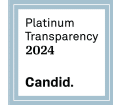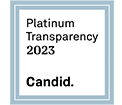Overview

Enhancing Accountability for Energy Project performance one site at a time
Whether at a wind farm or natural gas well, the production and generation of the energy that powers our lives has profound impacts on nearby people and environments. Responsible development of energy resources to meet the highest global social and environmental standards and benchmarks can dramatically reduce negative impacts while enhancing benefits for all stakeholders, and while respecting Indigenous Rights. Site-level annual third-party assurance can increase accountability and enhance performance, fostering trust and better outcomes for all.
Mission
We partner with business, communities and government to support transparent, equitable, and sustainable development of energy and natural resources.
What We Do
The Equitable Origin System drives positive change that reduces the social and environmental impact of energy development operations by helping companies measure and benchmark the performance of their projects against the EO100™ Standard.
Equitable Origin issued the world's first independent certification of an oil production site in Colombia in 2014. Today our certification spans over 15% of leading natural gas production sites in Canada and the US, and in summer 2024 we launched sector-specific supplements for utility-scale wind and solar projects. Our global team spans Ecuador, the United States, Mexico, Peru, the UK and Canada.
A History of Community Engagement
Equitable Origin was born in 2009 out of personal experience with oil and gas development and Indigenous Peoples in the Ecuadorian Amazon.
Reaching communities that neighbor existing or planned energy development has been a core consultation strategy for Equitable Origin in the development of the EO100™ Standard for Responsible Energy Development. As part of the initial consultation activities on the EO100™ Standard, Equitable Origin organized workshops in traditional formats and in local indigenous languages to introduce the concept of an independent certification system, to solicit advice on the design of the system and to better understand the specific social and environmental concerns that communities had about energy development projects.
Between 2010 and 2012, we held more than 70 workshops with local and indigenous communities affected by oil and gas exploration and production. Because of the decades of oil and gas development in Ecuador, many of these workshops were held in Ecuador's hydrocarbon regions, including Lago Agrio, Coca, Macas, Zamora, Puyo, Morona, Archidona and, Tena, as well as a regional workshop in Cumbayá in the vicinity of Quito that brought together Indigenous Peoples leaders of all the oil regions of Ecuador. We also conducted workshops with indigenous organizations in Peru, Colombia, Bolivia and Brazil.
With the help of the Coordinating Organization of Indigenous Communities of the Amazon Basin (COICA) and Organization of Indigenous Peoples of the Amazon Basin of Ecuador (CONFENIAE) we held consultations with representatives of a variety of Indigenous communities including the Achuar, Sápara, Shiviar, Shuar, Secoya, Kichwa, Cofan, Waorani and Siona.
These workshops, along with national and international outreach efforts, enabled us to build a database of over 1,500 individual and institutional stakeholders who participated during the public consultation and comment period and facilitated our ongoing efforts to engage people, communities, and organizations affected by energy development.


